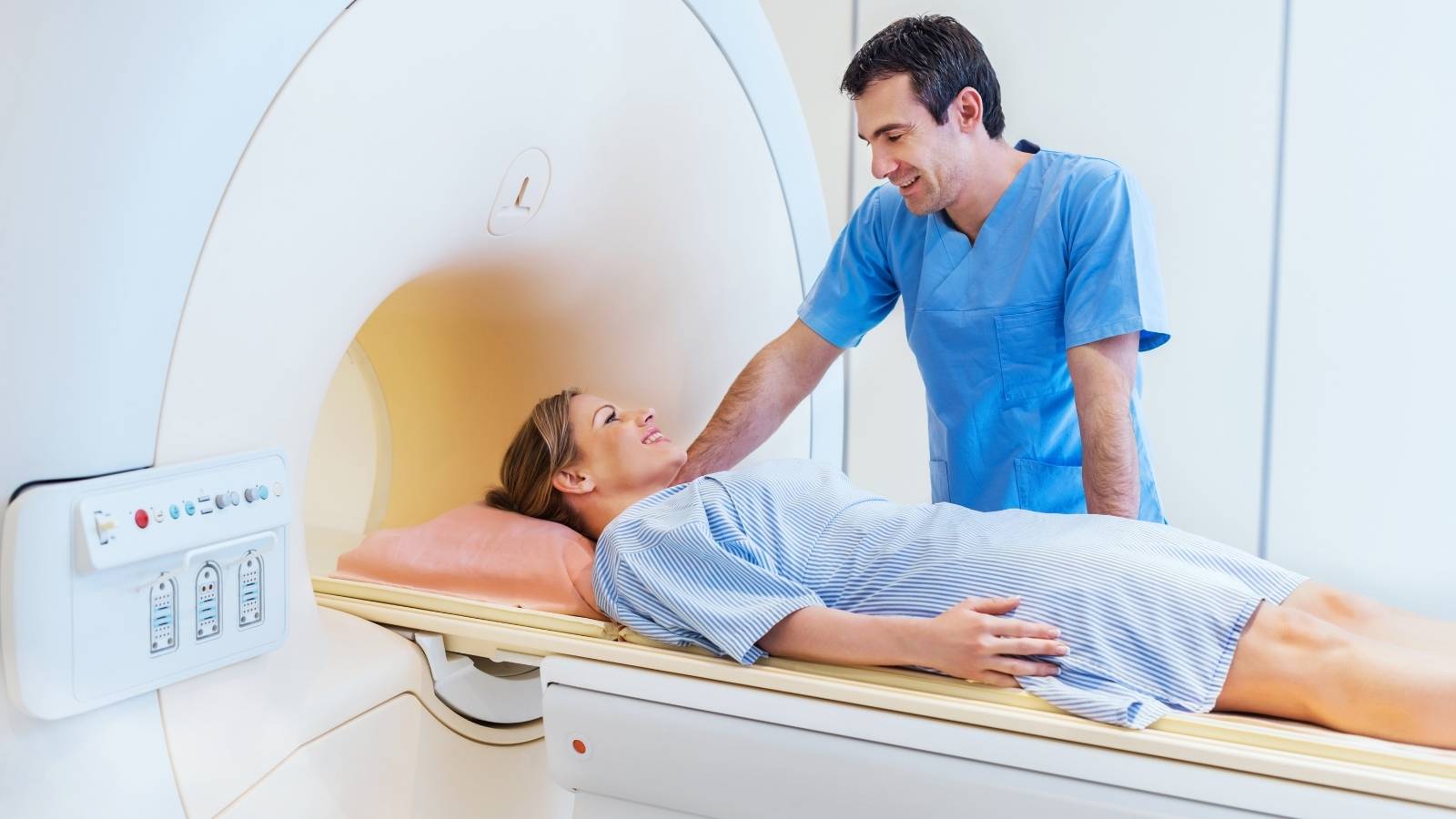
Mammogram MRI (Magnetic Resonance Imaging) or, as it is commonly known, breast MRI, is an advanced medical imaging technique that allows detailed visualization of breast tissue. It plays a crucial role in the early diagnosis of breast cancer and other conditions, offering high-resolution images of the breast and surrounding tissues. In this article, we will explain the basic information you need to know about breast MRI, how it is performed, and when it should be preferred.
How is a Breast MRI Performed?
A breast MRI is performed using a special MRI machine. During the procedure, the patient typically lies on their back, with the breasts placed in specific positions. When using a 3-Tesla MRI machine, the tissues in this area can be visualized in much more detail. A breast MRI can be performed with or without contrast material. In contrast-enhanced MRI, a contrast agent is injected intravenously, providing sharper and clearer images.
Preparation for a Breast MRI
No special preparation is required for a breast MRI. However, if contrast material is to be used, the patient’s kidney function and any allergies are evaluated in advance. Before the procedure, the patient should be informed about the MRI machine. It is essential to avoid wearing or bringing metal objects into the MRI room. Jewelry such as necklaces, bracelets, earrings, and all metal items must be removed before entering the MRI room. Wearing comfortable clothing is recommended for the procedure.
Do You Have to Remove Clothes for a Breast MRI?
Yes, you will need to undress for a breast MRI. Privacy is important, and you will be provided with a disposable hospital gown. This is essential for the quality and clarity of the images.
How Long Does a Breast MRI Take?
A breast MRI typically takes between 20 to 40 minutes. The duration may vary depending on the imaging techniques used and the patient's condition. If contrast material is used, the procedure may take slightly longer. During the scan, the patient must remain still, as movement can distort the images. Earplugs or headphones may be provided to reduce the noise from the MRI machine.
Can Breast Cancer Be Detected on MRI?
Breast MRI is an essential tool in diagnosing breast cancer. Especially in women with dense breast tissue, MRI provides more detailed results than other imaging techniques like mammography and ultrasound. Breast cancer and other breast conditions can also be diagnosed in men, and MRI may be required for them as well. MRI is used to precisely locate tumors, cysts, and other abnormal growths in both women and men, as well as assess the spread to surrounding tissues. It is crucial for the early diagnosis of breast cancer, but it may not be sufficient for a definitive diagnosis on its own. Therefore, breast MRI results are often supported by other tests, doctor evaluations, and if necessary, a biopsy.
Who Should Not Have a Breast MRI?
Breast MRI is generally a safe method for most patients, but it may not be suitable in some cases. It is not recommended for individuals with a pacemaker, metallic implants, or other devices that may interact with the magnetic field. MRI is also generally avoided during pregnancy unless absolutely necessary, but it can be performed with the approval of a doctor. Although there is no conclusive information about the potential harmful effects of the magnetic field on the fetus, MRI can be conducted if deemed necessary by your doctor.
Breast MRI Costs
The cost of a breast MRI can vary depending on the center where the procedure is performed, the techniques used (with or without contrast), the patient’s insurance status, and other factors. MRI with contrast is generally more expensive due to the additional costs of the contrast agent. For patients covered by insurance, some insurance companies may cover the cost of the MRI. Prices can also differ depending on the type of machine and the technological infrastructure used.Breast MRI is an effective method for maintaining breast health and detecting potential diseases at an early stage. If your doctor has recommended a breast MRI, you can contact us for more information about the process.